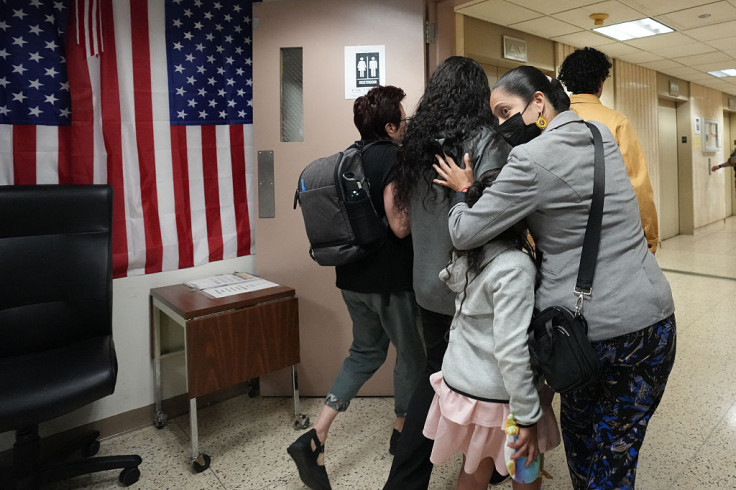
Immigration enforcement under Donald Trump's second term has intensified, leading not only to detentions and deportations, but also to severe financial fallout for the families of detainees.
As federal immigration arrests rise, relatives—often reliant on a single breadwinner—are left in economic freefall. Some lose vehicles, homes, savings, and the ability to meet basic needs. Even those not detained are preparing contingency plans, fearing that a traffic stop or missed court hearing could unravel their lives, as El Pais explains in a sprawling report published on Tuesday.
The piece sheds a light on Ariel Figueredo López, a 35-year-old Cuban immigrant, who legally entered the U.S. in 2023 through the CBP One program and began building a new life. He worked installing solar panels, moved states for opportunities, and shared a home with two other families to afford rent.
But after receiving a speeding ticket in Arkansas and trying to resolve it in person due to a clerical error, Figueredo was detained. He's now spent over five months in a Louisiana detention center, facing potential deportation to Cuba, where his family fears political imprisonment.
His girlfriend, Eliani Rusindo, who lived with him, attempted to maintain their finances, paying off a car loan and insurance. Eventually, she could no longer keep up. "We wanted to buy a home, have a family... But in the end, we lost it all," she said. Their car was repossessed, their credit wrecked, and their belongings scattered.
Figueredo's story is not unique, El Pais explains. His family has already spent thousands on legal fees and continues to send $500 a month for his defense. Like many others, they face the dual burden of financial collapse and legal uncertainty.
While U.S. Immigration and Customs Enforcement does not seize property, there is no legal mechanism to safeguard immigrants' assets during detention or deportation. "A deportation order on its own does not subject someone to the confiscation of their belongings," explained Nayna Gupta from the American Immigration Council to the news outlet. "But if tied to a criminal sentence, asset seizure is possible."
Fear of detention has led many immigrants to act preemptively: assigning power of attorney, withdrawing savings, and joining community workshops that offer "family preparedness plans" distributed by groups like the Florida Immigrant Coalition.
A recent report by CalMatters echoed the financial consequences on migrant families raised by El Pais, albeit as it pertains to housing security in California. Legal advocates report that families are struggling to pay rent but fear retaliation or eviction if they assert their rights or request changes, such as downsizing.
Although California has strong tenant protections, fear of ICE has discouraged tenants from seeking help, attending legal workshops, or even appearing in court. Advocacy groups report fewer immigrants participating in tenant rights events and more accepting unfavorable settlements to avoid court appearances.
© 2025 Latin Times. All rights reserved. Do not reproduce without permission.






